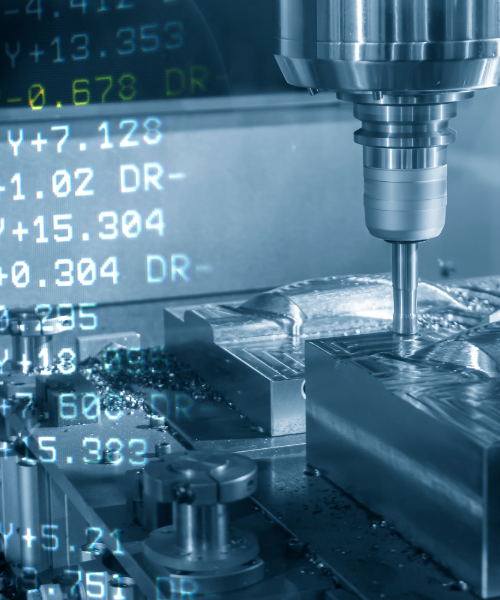
You may also like:
CNC Lathes: What’s on the Horizon?
Digital Twins: A New Era of Innovation
Vertical Turning Lathes: Precision and Power Redefined
In today’s fast-paced manufacturing landscape, data and analytics play a pivotal role in optimizing machine shop operations. The ability to collect, analyze, and leverage data enhances efficiency, precision, and productivity, enabling manufacturers to stay competitive in an increasingly digital world. By embracing data-centric technologies, machining facilities can ensure continuous improvement, streamline processes, and enhance customer satisfaction.
The Power of Data in Manufacturing
Data is the foundation of innovation in machining. It provides the insights necessary to refine production lines, reduce inefficiencies, and maintain high-quality standards. Manufacturers are now integrating advanced technologies to capitalize on data-driven decision-making, including:
- IoT Sensors for real-time production monitoring, ensuring optimal machine performance.
- Artificial Intelligence (AI) to enhance data analysis, improving machining cycle efficiency.
- Integrated Production Machining Software that breaks down data silos, fostering seamless communication between teams.
- Shared Quality and Process Reporting Tools for continuous quality control and process improvements.
These advancements help create a data-centric infrastructure that supports real-time analytics, ultimately leading to enhanced operational efficiency across the entire manufacturing value chain.
Enhancing CNC Machining Efficiency with Data Science
The integration of data science into CNC machining significantly improves productivity, accuracy, and cost-effectiveness. Here’s how data science is revolutionizing CNC machining:
Optimizing Machining Processes
By analyzing large datasets from CNC operations, manufacturers can identify patterns and optimize machining parameters. AI-powered algorithms predict tool wear, allowing for adjustments that reduce cycle times and enhance machine performance.
Predictive Maintenance
Traditional maintenance strategies rely on scheduled servicing, often leading to unnecessary downtime or unexpected failures. Predictive maintenance, powered by data analytics, enables early detection of potential machine issues. By monitoring key performance indicators, manufacturers can proactively address maintenance needs, reducing unexpected breakdowns and extending equipment lifespan.
Quality Control and Assurance
Maintaining precision and consistency in CNC machining is critical. Data analytics enables real-time monitoring of production parameters, swiftly identifying deviations from specifications. This proactive approach allows for immediate corrections, ensuring that final products meet stringent quality standards.
Supply Chain Optimization
Data science also enhances supply chain management by improving demand forecasting and inventory optimization. Manufacturers can ensure the timely availability of raw materials while minimizing excess inventory costs. This leads to a more agile and cost-effective production process.
Customization and Flexibility
With access to real-time insights, machining facilities can respond quickly to customer demands, offering greater customization and flexibility. Predictive analytics helps manufacturers anticipate market trends, allowing them to adapt production processes accordingly.
The Role of AI in CNC Machining
AI further amplifies the benefits of data analytics in machining, offering advanced capabilities such as:
- Advanced Analytics: AI algorithms continuously analyze historical and real-time data to refine machining strategies, optimizing tool paths, cutting speeds, and feed rates.
- Intelligent Decision-Making: AI-powered systems provide real-time feedback and recommendations, reducing manual intervention and ensuring consistent machining outcomes.
Conclusion
The integration of data science and AI into machining has transformed the industry, driving efficiency, precision, and innovation. From predictive maintenance and real-time quality control to optimized supply chain management and enhanced customization, data-driven machining offers significant advantages. As technology continues to evolve, leveraging data and analytics will be essential for manufacturers seeking to stay ahead in an increasingly competitive market.
By embracing a data-centric approach, machine shops can not only improve operational efficiency but also unlock new opportunities for growth, ensuring long-term success in the ever-evolving world of modern manufacturing.